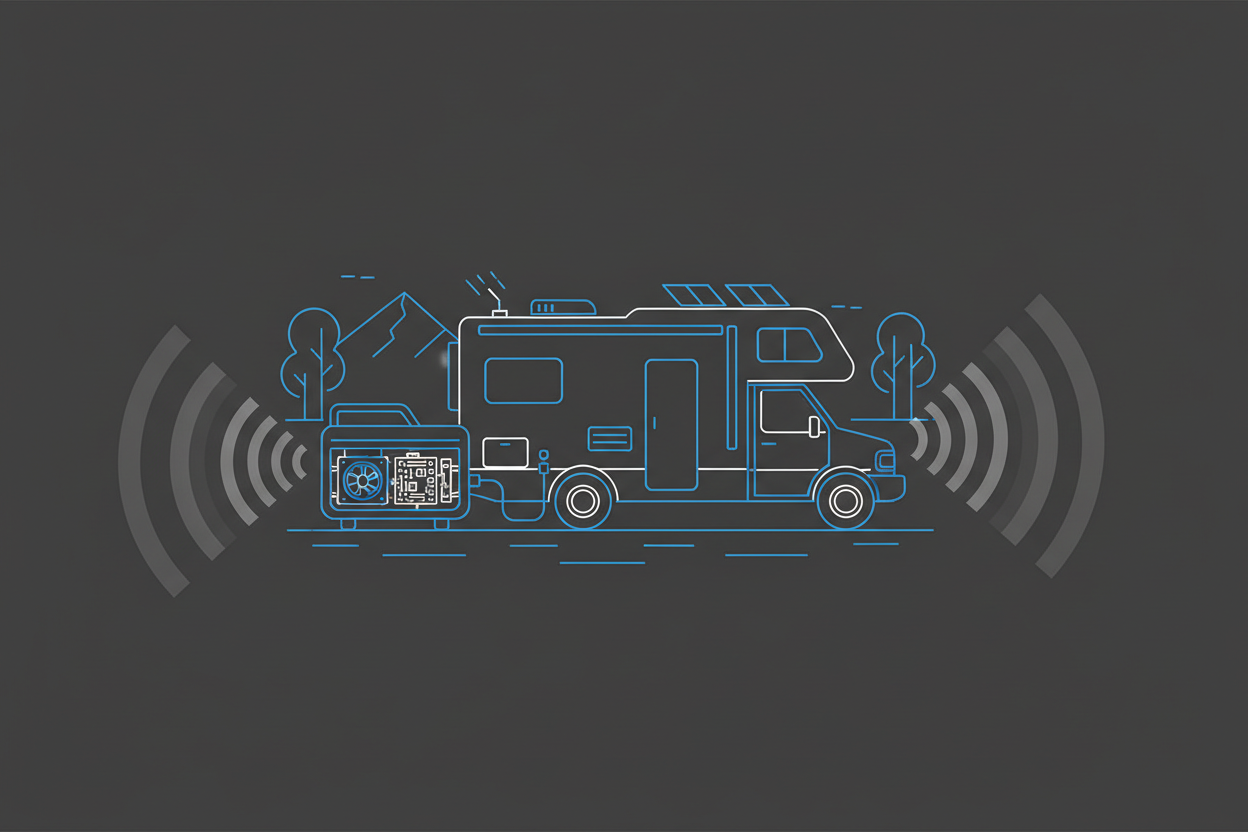RV Generator Noise Levels: How Quiet Is Quiet Enough for Campgrounds?
Noise level is one of the most important factors for RV generator buyers. A generator that is too loud can ruin campground comfort and break park rules. This guide explains decibel ratings and how to choose a quiet RV generator.
What Decibels Mean for RV Use
Generator noise is measured in decibels, or dB. The decibel scale is logarithmic, so small changes matter. A 10 dB increase is perceived as about twice as loud.
Most manufacturers rate noise at a fixed distance. Common testing distances are 23 feet or 25 feet. Always compare generators using the same distance.

Typical RV Generator Noise Levels
| Generator Type | Typical dB Range (25 ft) | RV Suitability |
|---|---|---|
| Closed-frame inverter generator | 48–58 dB | Best for campgrounds |
| Open-frame inverter generator | 55–65 dB | Good for RV travel |
| Conventional generator | 65–75+ dB | Often too loud |
Closed-frame inverter models are usually the quietest option. They are designed to dampen engine noise with full enclosure.
Why Inverter Generators Are Quieter
Inverter generators adjust engine speed to match load. At low loads, the engine slows down and noise drops. Conventional generators run at a fixed high speed.
Many RV models also include eco mode. Eco mode keeps RPM low unless surge power is needed. This reduces both noise and fuel use.
Campground Noise Rules and Quiet Hours
Many parks enforce limits around 50 to 60 dB at 25 feet. Quiet hours often begin in the evening and last overnight. Some areas allow generators only during set daytime windows.
A quiet inverter generator improves compliance and prevents complaints. It also helps you enjoy more flexible boondocking schedules.
How Placement Affects Noise
Noise changes based on where you set the generator. Place it on level ground and direct the exhaust away from other rigs. Increasing distance is the easiest way to reduce perceived sound.
- Keep the generator 15–25 feet from your RV if cords allow.
- Avoid placing it under the camper or near reflective walls.
- Use a firm surface to prevent vibration resonance.
Simple Ways to Make an RV Generator Quieter
- Run eco mode when loads are light.
- Use a longer RV-rated extension cord.
- Add a soft-start module to reduce AC surge noise.
- Maintain clean air filters and fresh oil.
Poor maintenance can increase noise and vibration. A well-tuned generator runs smoother and quieter.
Conclusion
For RV camping, a generator in the 48–60 dB range is usually quiet enough. Inverter generators are preferred because they run at lower RPM and reduce sound under light loads. With proper placement and eco mode, you can meet campground rules and camp comfortably.
